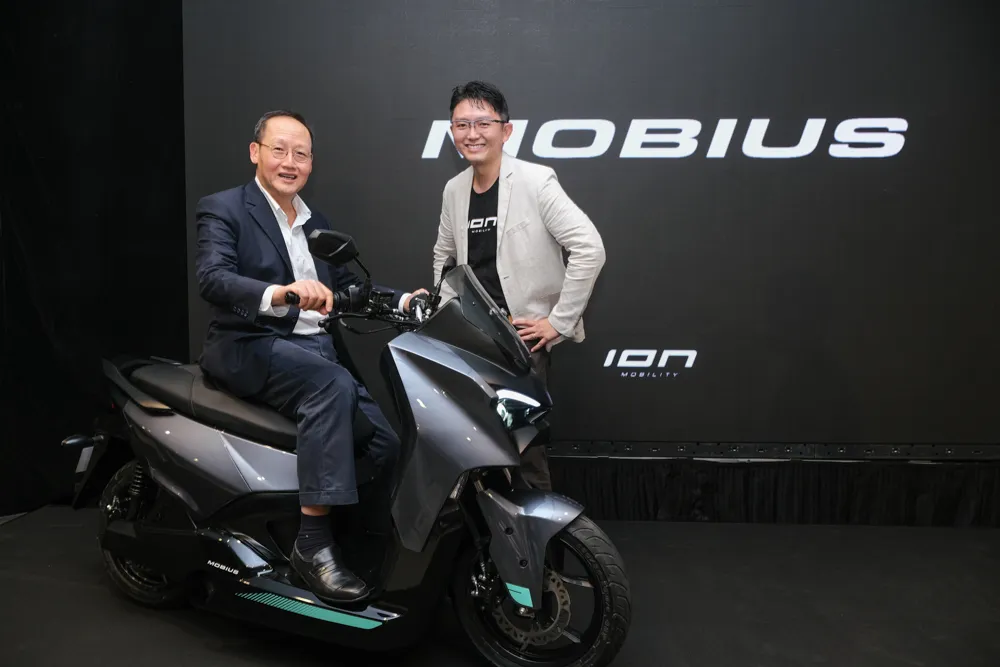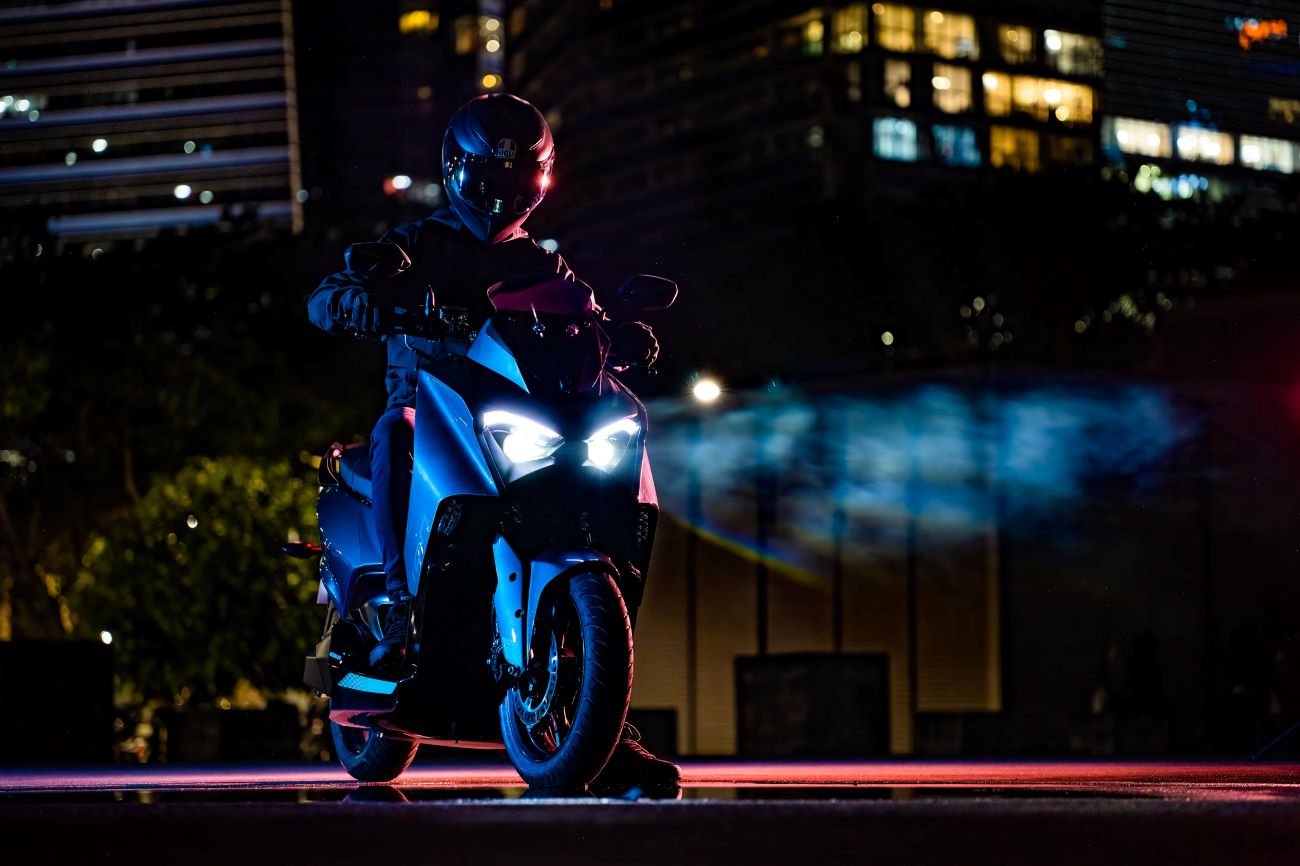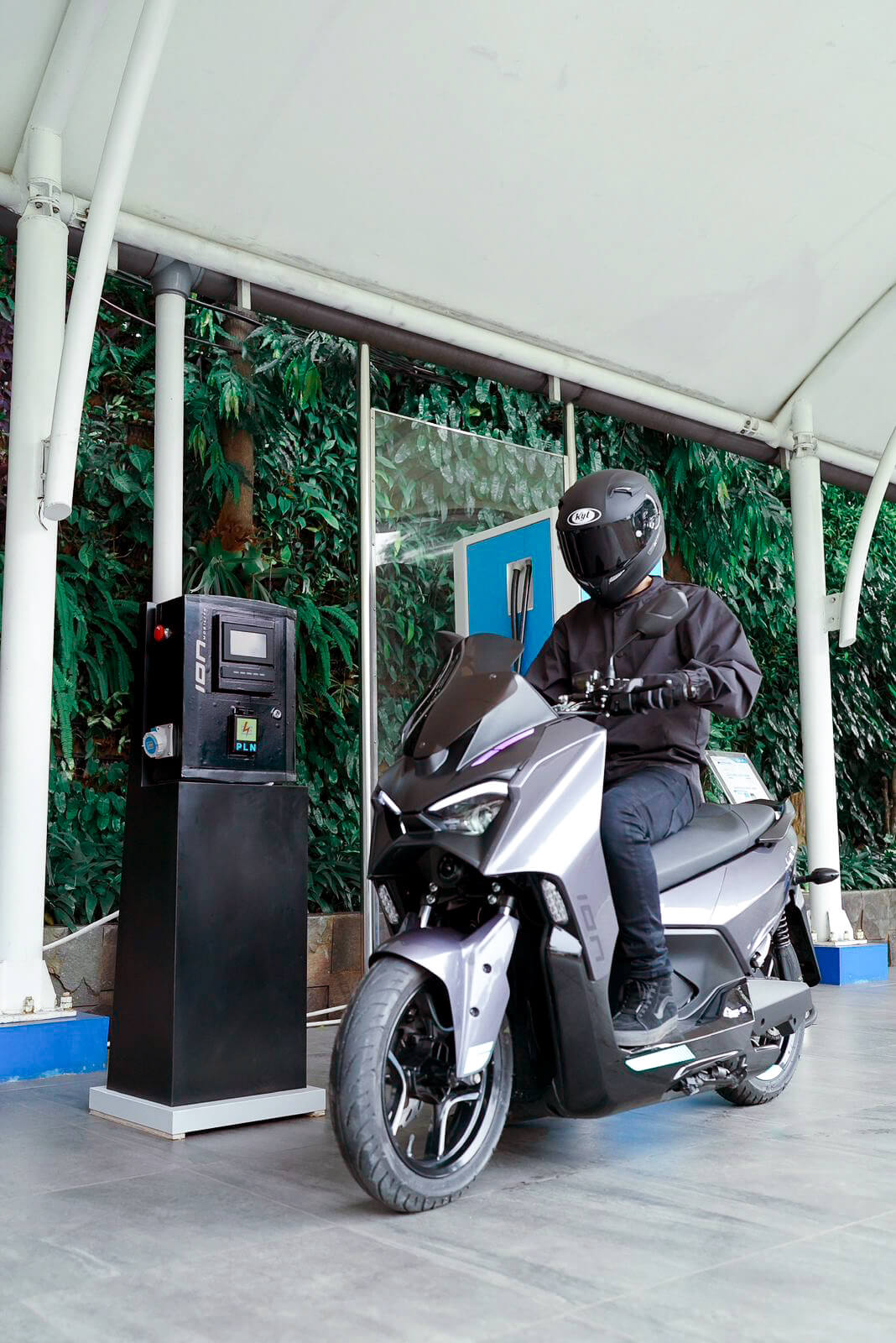ION Mobility's determination to create electric motorcycles in Indonesia
The first product M1-S has been introduced to the public, adoption of the D2C model takes advantage of its showroom presence and e-commerce platform
Indonesia is starting to catch up in terms of electric vehicles. The government is starting to step on the gas to encourage the upstream industry to move downstream, after declaring electric vehicles as part of Indonesia's future. There are a number of policies and incentives to ensure the success of these targets.
This prompted the names of local motorcycle manufacturers to emerge. The names of electric motorbikes that have been circulating include ALVA, Electrum, Volta, SLIS, Gesits, U-Winfly and Polytron Fox-R. Everything in-backing by large companies, including state-owned companies.
Scorpio Electric (Singapore) in Southeast Asia, and behind Gogoro (Taiwan) and Ather Energy (India) in Asia Pacific, are some of the manufacturing names that can be said to be champion in their respective countries.
Among fellow Southeast Asian countries, adoption progress is more or less similar. Averages face the same challenges, such as a lack of public charging infrastructure; high cost of ownership; safety, driving range, and EV operation and maintenance; and, dependence on energy sources.
Latest survey Deloitte points to increasing interest in EVs among consumers in the region. It says, “driven by lower fuel costs, concerns about climate change/reducing emissions, and a better driving experience. The highest consumer interest came from Singapore, Malaysia and Thailand. However, lack of public charging infrastructure and driving distance remain barriers to adoption.” This concern is natural, considering the limited battery capacity for long distance travel.
Southeast Asia is emerging as a potential market and manufacturing center for electric vehicles (EVs). Mordor Intelligence estimates the EV market in Southeast Asia will be nearly $500 million in 2021 and expects it to grow to $2,7 billion by 2027.
All of the conditions above encourage James Chan's entrepreneurial spirit to participate in enlivening the EV industry. Even though Chan is not a motorbike rider or automotive expert, he sees the potential to save the earth with clean energy. He has more than 16 years of experience in economic and industrial policy formulation and implementation, venture capital, product development and management, business strategy and development, finance and operations in the technology and startup ecosystem in Southeast Asia and East Asia.
This provision gave him the confidence to initiate the establishment of ION Mobility in Singapore in 2019. ION Mobility is an electric motorcycle and clean energy company in Southeast Asia on a mission to create and deliver affordable, desirable and sustainable mobility and energy for everyone.
“I see a push from the government to start electric vehicles. I believe it is a long journey of transformation supply chain leaders in that industry. "We are also interested in participating to accelerate this and offer the best solutions," Chan said DailySocial.id.
According to him, top EV companies such as Tesla, Rivian, and Lucid Motors have each succeeded in proving the feasibility and sustainability of electric mobility in the car and truck segments over the last 10 years. Therefore, he wants to build and scale ION Mobility in Southeast Asia to be on par with these companies, which have roadworthy electric motorbikes and cleaner energy charging networks, and the same focus as Southeast Asian consumers.
Moreover, sales of motorbikes dominate over cars with a ratio of 6:1 in Indonesia. In this region, motorbikes have touched the lives of more than 200 million people. However, these populations are responsible for more than cars, emitting up to 16 times more hydrocarbons, three times more carbon monoxide, and other pollutants over their lifetime.
By reducing doubts and friction and accelerating the consumer transition towards electric motorbikes, he assured that ION Mobility is in a leading position to play an important role in reducing urban air and noise pollution, dependence on fuel subsidies, supply chain and industrial development as well as social development -a more sustainable economy centered around cities across Southeast Asia.

ION Mobility business model
Chan emphasized that his company is an electric motorbike manufacturer that assembles the entire process independently, meaning it does not use any vendors. ION Mobility's first product has been underway since July 2020, after in-depth market research. Thanks to that, it can understand users in this region better than its competitors. It concluded that there were no attractive options for Southeast Asian riders to move away from their traditional combustion motorcycles.
In the assembly process until completion, his party adopted an approach full-stack, end-to-end to design, engineer, test and assemble our electric motorcycles for delivery. He believes this is the best approach that provides business strategy flexibility, while allowing it to quickly adapt to adjust product and service dynamics to respond to learning from Southeast Asian market users.
“I don't believe that to be an OEM (original equipment manufacturers) have to depend on the vendor because this is like buying and selling. So we handle everything ourselves, control everything ourselves so we can provide optimal selling prices. In the end we chose the hardest path.”
OEM is a term most often heard in two industries: automotive and IT. This term is often associated with companies that produce products which are then resold or rebranded by other companies.
For the record, assembly of internal battery packs and their supports is carried out in Singapore and Indonesia from time to time. Meanwhile, distribution and final assembly are completed at the ION Mobility factory in Cikarang, West Java.
“We were quickly attracted to the huge potential of Indonesia and other industrial supply chains in the region, and are confident in what we can deliver to accelerate the inevitable consumer transition to electric motorbikes in the years to come.”
ION Mobility itself takes a strategy direct-to-consumer (D2C) to get as close as possible to consumers, starting from premium mass market. Companies capitalize on presence showroom which is located at Radio Dalam, Jakarta to showcase its products offline. There is a possibility to enter e-commerce platforms to expand consumer coverage.

Chan is optimistic about this D2C concept. Because the company will control the financing of its products through a fintech business model designed to capture maximum value while having positive unit economics per motorbike without relying on sales volume as traditional hardware companies usually do.
In practice, the strategy translates into a combination of leasing and hire-purchase offers that provide consumers with new options on terms equivalent to those they are familiar with when they purchase a typical motorbike. As a disruptive business, companies need to own and optimize margins across the board, while adding value to offer an integrated experience and compete with incumbents.
“Ultimately, we strive to offer desirable products with features cost-to-superior and total-cost-of-ownership, which makes for a better buy-or-not transition by the target audience.”
ION Mobility's first product is the M1-S which was introduced at the 2022 Indonesia Motorcycle Show on 2 November-6 November 2022. This product, designed specifically for the Indonesian market, is designed to be futuristic but functional, by balancing strength and refinement.
The M1-S features a 5kW electric motor with a peak power of 12,5kW to give riders an agile acceleration of 3,7 seconds from rest to 50 km/h, with a maximum speed of 105 km/h. Customers can start with a choice of two weather-resistant battery pack configurations (48Ah or 60Ah), which can achieve a range of between 120 km to 150 km between charges.
The M1-S is designed for everyday commuting, the step-through design of the M1-S provides 26 liters of under-seat storage, and an integrated charging cable allows users to charge at home or on the go.
The M1-S is equipped with an ultra-bright 7-inch LCD screen supported by a multi-core processor, an advanced sensor package, and has a keyless security system that can intelligently pair the user's smartphone via the ION Mobility application.
For electric charging, the company has established a partnership with PLN to provide charging infrastructure for electric motorbikes and solutions for PLN, ION and other customers. ION Mobility will contribute to the procurement of Public Electric Charging Stations (SPLU) with an initial commitment of 100 units throughout Jakarta and will continue to other cities nationally according to market needs.
In the future, electric motorbike riders can achieve a distance of more than 100 km by charging for one hour, if they use the fast charging feature on the ION M1-S. Even though it has been introduced to the public, the M1-S will only be marketed next year. The price has not been announced, but it has been said that the price range is under IDR 50 million.

Funding has been obtained
In ION Mobility's journey, the company has been supported by funding from a number of investors. In 2021, the company announced the completion of a $6,8 million seed financing. Quest Ventures and TNB Aura led the round, joined by new and existing investors such as GDP Venture, Monk's Hill Ventures, Seeds Capital, and 500 Southeast Asia. Other investors include Alice Hung, ION Mobility CEO James Chan, and ION Mobility CTO Calvin Cheng.
Then in the middle of this year it received additional funding for a pre-Series A round of $2,35 million from TNB Aura, Quest Ventures, Seeds Capital, and SEA Frontier Fund. It is stated that the company is currently raising a Series A round which is expected to be completed soon. These funds will be used to fund the company's plans to enter the market, increase its inventory and production capacity.
Chan himself said that Indonesia was the first country the company tested. However, his party has the ambition to dominate the ASEAN market, Thailand, Vietnam and the Philippines will be the next expansion plans next year.
Sign up for our
newsletter
 Premium
Premium
